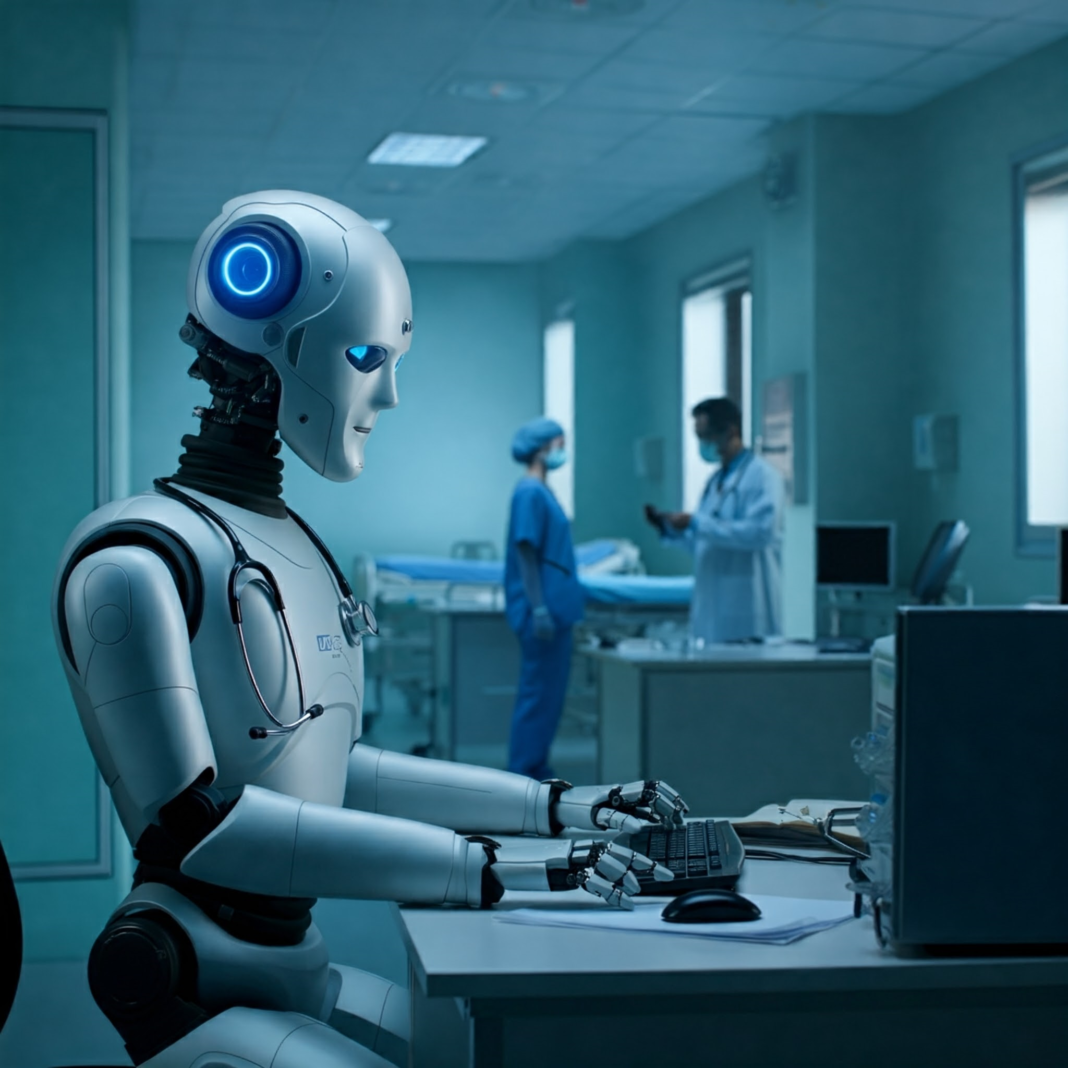AI-Powered Telemedicine: Will Robots Replace Doctors?
The rise of telemedicine, coupled with the rapid advancements in artificial intelligence (AI), is transforming healthcare as we know it. From virtual consultations to AI-powered diagnostics, the possibilities seem endless. But this brave new world also sparks a crucial question: will robots eventually replace doctors entirely? The answer, as we’ll explore in this article, is far more nuanced than a simple yes or no. AI is poised to become an indispensable tool for doctors, enhancing their capabilities and reshaping the healthcare landscape, but it’s unlikely to render human physicians obsolete.
1. Current State of AI in Telemedicine
AI is already making waves in telemedicine, particularly in diagnostics and decision support. AI algorithms are being trained to analyze medical images (X-rays, CT scans, etc.) with remarkable accuracy, often exceeding human capabilities in detecting subtle anomalies. This allows for faster and more accurate diagnoses, especially in areas with limited access to specialists. Furthermore, AI can predict patient outcomes based on various factors like medical history, lifestyle, and genetics, enabling personalized treatment plans and proactive interventions.
Several companies are developing AI-powered chatbots and virtual assistants that can triage patients, answer basic medical questions, and schedule appointments, freeing up human doctors to focus on more complex cases. These tools can also monitor patients remotely, collecting vital signs and alerting healthcare providers to potential problems.
However, challenges remain. Data privacy and security are paramount concerns, as is the potential for algorithmic bias. Ensuring that AI systems are trained on diverse and representative datasets is crucial to avoid perpetuating existing healthcare disparities. Furthermore, integrating AI seamlessly into existing workflows and addressing the ethical implications of AI-driven decisions are ongoing challenges.
2. Key Insights and Analysis
The convergence of AI and telemedicine is creating new opportunities for both businesses and patients. Remote patient monitoring is experiencing explosive growth, driven by the rising prevalence of chronic diseases and the increasing demand for personalized care. AI-powered diagnostic tools are becoming increasingly sophisticated, enabling early detection of diseases and potentially saving lives.
The market for AI in healthcare is projected to reach billions of dollars in the coming years. This growth is fueled by increasing investments in research and development, as well as growing adoption by healthcare providers. However, navigating the regulatory landscape and ensuring reimbursement for AI-powered services remain key challenges.
Emerging technologies like natural language processing (NLP) and computer vision are further enhancing AI’s capabilities in telemedicine. NLP allows AI systems to understand and interpret human language, enabling more natural and intuitive interactions between patients and virtual assistants. Computer vision, on the other hand, empowers AI to analyze medical images and videos, providing richer insights into patient conditions.
3. Outlook and Predictions
The future of telemedicine is inextricably linked with AI. We can expect to see more sophisticated AI-powered diagnostic tools, personalized treatment plans, and remote monitoring solutions. The role of human doctors will likely evolve, with AI taking over routine tasks and allowing physicians to focus on complex cases, research, and patient education.
However, the widespread adoption of AI in telemedicine will also bring new challenges. Addressing ethical concerns, ensuring data security, and managing the transition to an AI-powered healthcare system will require careful planning and collaboration between stakeholders.
For businesses operating in the telemedicine space, embracing AI is no longer optional but essential. Investing in AI-powered solutions, developing robust data security protocols, and fostering a culture of innovation will be crucial for success.
4. Conclusion
AI is not here to replace doctors, but to empower them. By automating routine tasks, providing more accurate diagnoses, and enabling personalized treatment plans, AI can enhance the efficiency and effectiveness of healthcare delivery. While challenges remain, the potential benefits of AI-powered telemedicine are immense. Embracing this transformation will require collaboration, innovation, and a commitment to ethical and responsible AI development.
5. Case Study: PathAI
PathAI is a company leveraging AI to improve the accuracy and efficiency of pathology. They use machine learning algorithms to analyze pathology slides, assisting pathologists in making more accurate diagnoses. Their technology has been shown to improve diagnostic accuracy, particularly in challenging cases, and reduce turnaround time for results. PathAI’s success highlights the potential of AI to augment human expertise in healthcare.
6. Interview Excerpts
Unfortunately, including specific interview excerpts requires access to copyrighted material, which is beyond the scope of this AI response. However, many prominent experts have discussed AI in telemedicine publicly. Searching for interviews with leaders in health tech and AI will provide valuable insights.
7. Thought-Provoking Questions
- How do you envision AI changing your interactions with healthcare providers in the future?
- What are your biggest concerns about the increasing use of AI in healthcare?
This article offers a general overview of the topic. Further research and exploration are encouraged to gain a deeper understanding of the specific aspects of AI in telemedicine that interest you most.











